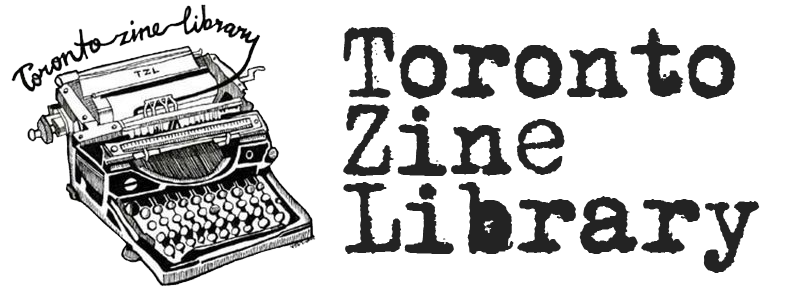 The TZL was mentioned in the latest issue…check it out!
The TZL was mentioned in the latest issue…check it out!
Zine Libraries: Alternative Learning Centres with Couches
MICHELLE KAY
Visiting a zine library isn’t like going to a conventional library. You don’t have to speak in hushed voices, you can bring in a hot beverage, sit on comfy couches, peruse independent, hard-to-find publications and meet other zine enthusiasts. Toronto’s Zine Library is housed in the Tiki Roon at the TRANZAC, a community organization that promotes the arts, theatre and music. The Tiki Room is not large or fancy, but it serves the purpose of providing a cozy place for people to gather and read zines or listen to readings. Most zine libraries are more than just archives with dusty boxes but also act as meeting areas, hosting events, talks and workshops where artists, writers, activists, media critics and others can congregate to share ideas.
However, if you’re already visiting the Toronto Reference Library, why not check out the zine library there? Broken Pencil donates there zines to provide the bulk of this collection. While the focus is on the Toronto zine scene, you will find other Canadian and international zines such as Montreal’s Fish Piss. The zines are neatly arranged in folders and are stored alphabetically by title. They currently have about 700 zines, and if you need a break from your studies, it’s conveniently located on the 4th floor of the library for your perusal.
According to Montreal’s Bibliograph/e co-founder Anna Leventhal, “By having a place where zines are broadly accessable to the general public, there is a chance of maybe breaking down some of the barriers between media producers and media consumers.” It serves as a kind of “nexus for people who are interested in alternative media, original writing and weird art.” The Toronto Zine Library Collective’s Tara Bursey likens zine libraries to political infoshops in that they “provide people with a venue for free information exchange and learning without interference or moderation. Both are places that could be considered alternative learning centres or ‘free schools.'”
Halifax’s Anchor Archive is found in Sarah Evans’ and Sonia Edworthy’s living room in a detatched house in North Halifax on Roberts Street. Evans states, “The purpose of the Anchor Archive- and I would guess most zine libraries- is to share zines, often a hidden and inaccessible type of publication, with anyone who is interested.” Anchor Archive also organizes zine fairs and since 2006, has been running artist/writer/zinemaker-in-residence programs where residents move into the backyard shed- which is cleaned out to hold a bed and a desk- for a few weeks or a month and work on projects, holding office hours during the library’s open hours. They are a great opportunity for collaboration and allow for out-of-towners as well as local folks a chance to work on a project while using the resources of Anchor Archive. Past residents include Dennis Hale, Sarah Mangle, Jeff Miller and Sara Spike, and Iris Porter.
Zine libraries are mostly volunteer-run, recieving little funding except when supporters and organizers decide to pay for expenses out of their own pockets. They are truely labours of love. Says Evans, “Halifax has a real shortage of public spaces that are community-run, art-based, and when we moved in here, we decided that a zine library would be a good focal point for starting something. There was always a lot of interest in zine fairs or workshops we were organizing.”
Broken Pencil #35
